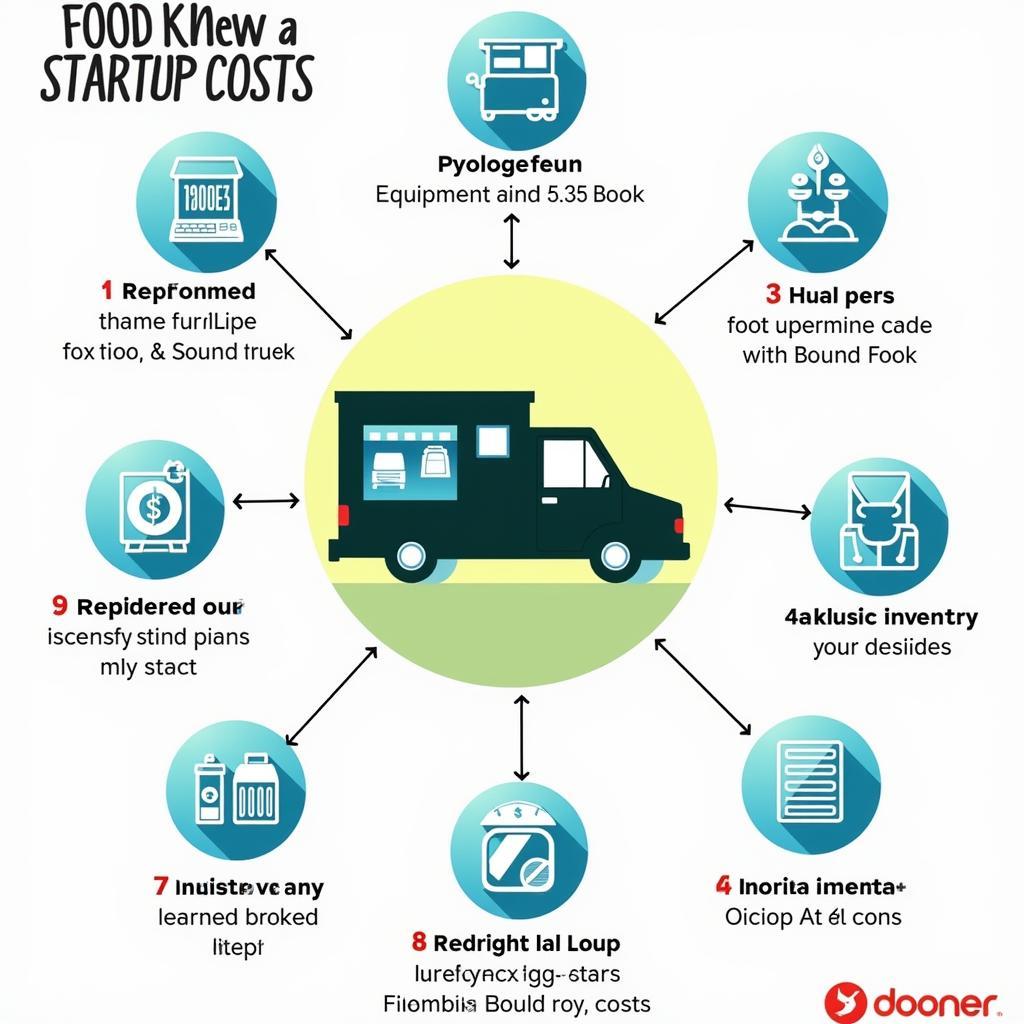Are Food Trucks A Good Investment? The food truck industry has exploded in popularity, transforming the culinary landscape and offering a unique dining experience. But is this vibrant scene as lucrative for owners as it is appealing to customers? This article dives deep into the realities of food truck ownership, exploring the potential profits and pitfalls to help you determine if it’s the right investment for you.
Weighing the Pros and Cons of Food Truck Investments
Investing in a food truck can be a thrilling venture, but like any business, it requires careful consideration. Is it a guaranteed path to riches, or a recipe for disaster? The truth lies somewhere in between. Let’s break down the advantages and disadvantages to help you make an informed decision.
Advantages of Owning a Food Truck
- Lower Startup Costs: Compared to a traditional brick-and-mortar restaurant, food trucks typically require less capital to get started. This can be particularly attractive for first-time entrepreneurs. food trucks for sale in tucson az could be a great place to start your research.
- Mobility and Flexibility: The beauty of a food truck is its mobility. You can go where the customers are, targeting events, festivals, and high-traffic areas. This flexibility allows you to adapt to changing market demands and maximize your reach.
- Menu Specialization: Food trucks often focus on a niche cuisine, allowing for menu specialization and brand building around a specific culinary concept. This targeted approach can cultivate a loyal customer base.
- Reduced Overhead: Lower rent and fewer staff members translate to reduced overhead costs compared to traditional restaurants. This can significantly impact your bottom line.
Disadvantages of Owning a Food Truck
- Regulations and Licensing: Navigating the complex web of permits, licenses, and health regulations can be a daunting task. Requirements vary by location and can be time-consuming and costly. Knowing the food truck water tank requirements is just one example.
- Competition: The food truck scene can be highly competitive, especially in densely populated areas. Standing out from the crowd requires a unique concept, excellent food, and effective marketing.
- Operational Challenges: Running a food truck involves long hours, demanding physical labor, and logistical complexities. Managing inventory, equipment maintenance, and staffing can be challenging.
- Weather Dependency: Unlike brick-and-mortar establishments, food trucks are vulnerable to weather conditions. Rain, extreme heat, or cold can significantly impact sales and operations.
Is a Food Truck Business Profitable?
So, are food trucks a good investment financially? The profitability of a food truck business depends on various factors, including location, menu pricing, operating costs, and marketing effectiveness. While some food trucks generate substantial profits, others struggle to break even. Careful planning, diligent management, and a strong business plan are crucial for success.
How Much Does it Cost to Start a Food Truck Business?
Startup costs can vary widely, ranging from $20,000 to $100,000 or more, depending on the truck’s size, equipment, and customization. Food cart supplies can also add to the initial investment. Understanding food truck tax deductions can help you manage your finances effectively.
 Food Truck Startup Costs Breakdown
Food Truck Startup Costs Breakdown
What to Consider Before Investing in a Food Truck
- Market Research: Thorough market research is essential. Identify your target audience, analyze the competition, and determine the demand for your cuisine.
- Business Plan: A comprehensive business plan is your roadmap to success. It should outline your concept, financial projections, marketing strategy, and operational plan.
- Financial Planning: Secure adequate funding and develop a realistic budget that accounts for all expenses.
- Location and Permits: Research local regulations and secure the necessary permits and licenses before launching your business.
“Location is key in the food truck industry,” says Maria Sanchez, a seasoned food truck consultant. “Understanding your target market and their preferences is crucial for maximizing your reach and building a loyal customer base.”
 Developing a Food Truck Business Plan
Developing a Food Truck Business Plan
Conclusion
Are food trucks a good investment? The answer is complex and depends on various factors. While the food truck industry offers exciting opportunities, it also presents significant challenges. Thorough research, meticulous planning, and a passion for the culinary arts are essential for success. By carefully considering the pros and cons and developing a solid business plan, you can increase your chances of turning your food truck dream into a profitable reality.
FAQ
- What are the biggest challenges for food truck owners? Competition, regulations, and weather dependency are common challenges.
- How much can a food truck make in a year? Profitability varies widely, but successful food trucks can generate substantial income.
- What type of food is most popular for food trucks? Popular options include ethnic cuisine, comfort food, and gourmet sandwiches.
- Do I need a special license to operate a food truck? Yes, permits and licenses are required and vary by location.
- How do I market my food truck business? Social media, local events, and partnerships are effective marketing strategies.
- What are some common food truck expenses? Expenses include fuel, food costs, permits, maintenance, and insurance.
- Is financing available for food trucks? Yes, various financing options are available, including loans and investors.
Need help? Contact us at Phone Number: 02437655121, Email: minacones@gmail.com, or visit us at 3PGH+8R9, ĐT70A, thôn Trung, Bắc Từ Liêm, Hà Nội, Việt Nam. We offer 24/7 customer support.